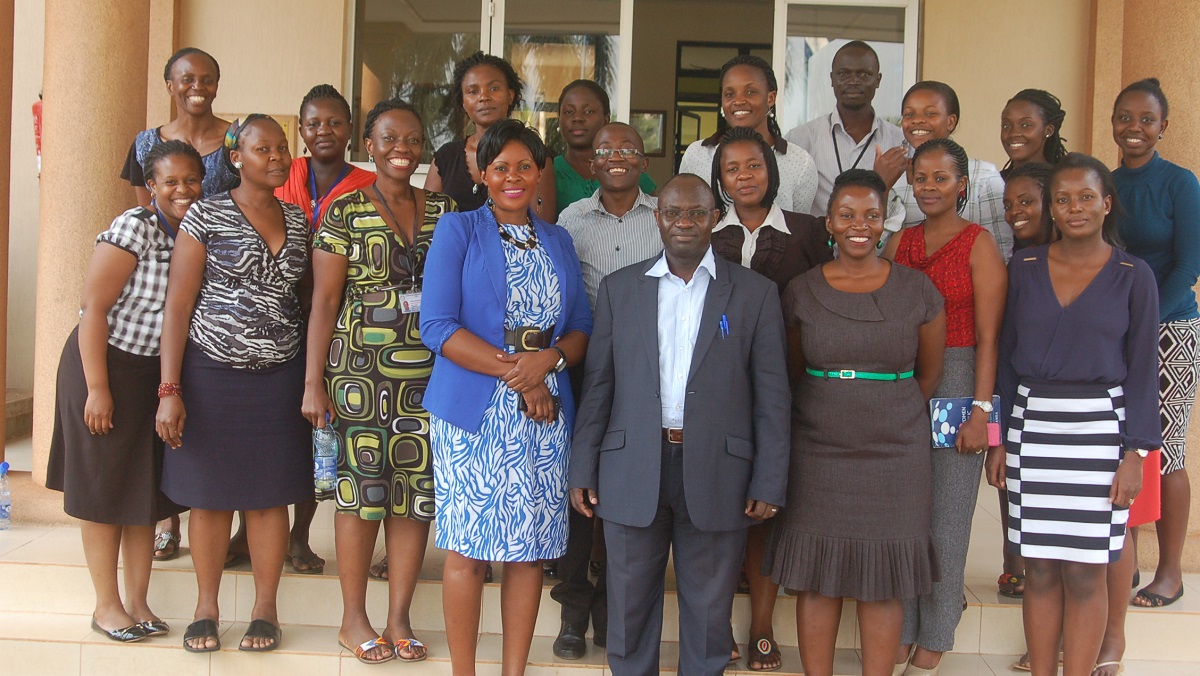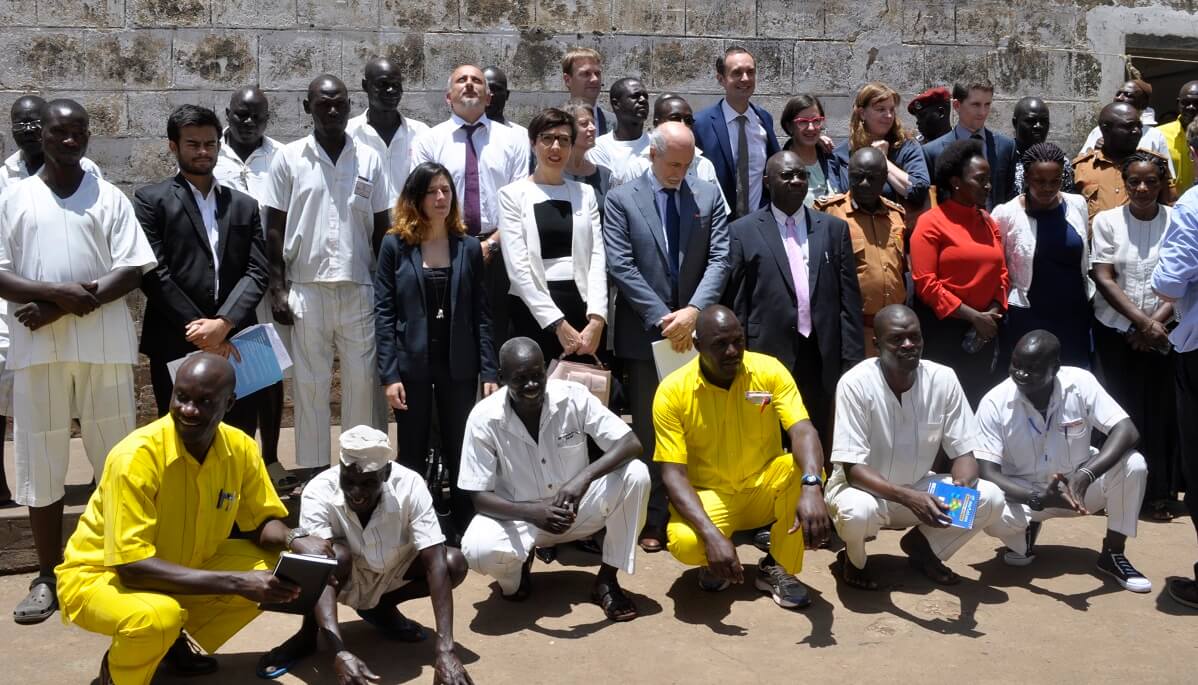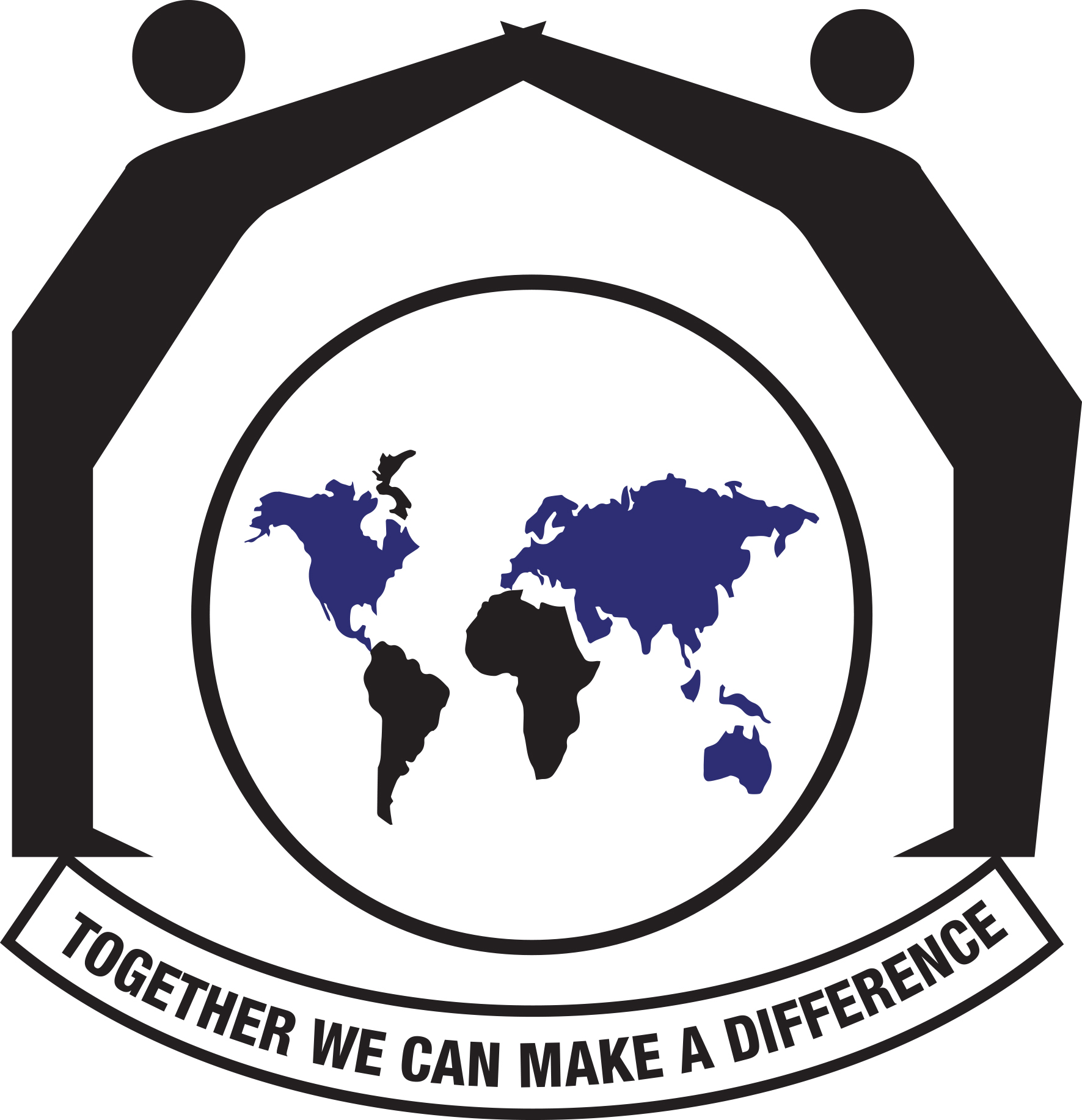
Overall Objective:
To advocate for the progressive abolition of the death penalty.
FHRI pursues its abolition campaign through public awareness actions, litigation, research and advocacy, dialogue, training, and encouragement of progressive jurisprudence.
Lobbying and Legislative Advocacy.
One of the approaches that FHRI embraced in the campaign is legislative advocacy. After two consecutive executions were carried out in 1996 and 1999 respectively, with 28 prisoners being executed in the latter year alone, the largest group of prisoners ever hanged in a day, FHRI suffered a major setback and was forced to step up the campaign on death penalty.
In 2003, FHRI filed a constitutional petition on behalf of all prisoners on death row in Uganda to challenge the death penalty and its application in Uganda. Thereafter, FHRI spearheaded the formation of the Civil Society Coalition on the Abolition of the Death Penalty in Uganda together with six other Civil Society Organisations in Uganda.
On 4th September 2003, the Coalition filed the petition against capital punishment through the entire death row population, making it the first of its kind in world history. The petitioners contended that the sentence was inconsistent with Articles 24 and 44 of the 1995 Constitution of the Republic of Uganda. All the petitioners had been convicted of diverse capital offences in their individual capacity under the Penal Code Act, and had been sentenced to death.
The landmark case of Susan Kigula, Fred Tindiwihura, Ben Ogwang and 414 others Vs the Attorney General, filed through Katende, Ssempebwa & Co. Advocates, declared the mandatory death penalty unconstitutional. It condemned the delay of three or more years in carrying out the execution following confirmation of the sentence by the Supreme Court, stating that the uncertainty had horrible effects on a prisoner’s mental health. An appeal of some of the sections in the Constitutional Court which had its ruling delivered on 10th June 2005 declared it as unconstitutional. The Supreme Court hearing took place on 3rd July 2008 and judgment delivered on 21st January 2009.
Although, the Constitutional Court and Supreme Court held that the death penalty is in itself constitutional, the outcome of the Susan Kigula case was a major victory in the campaign that had lasted 15 years.
The two major human rights abuses that were declared unconstitutional in the Susan Kigula case are;
- The mandatory death penalty.
- The delay of three or more years in carrying out the execution following confirmation of the sentence by the Supreme Court.
Together with other abolitionists, FHRI participates in advocacy missions on the death penalty at the African Union and the United Nations level. Through elimination of provisions regarding the mandatory death sentence of the death penalty, Uganda made a significant step in line with her obligations under the International Convention on Civil and Political Rights, and the aspirations set out under the United Nations General Assembly resolution on the annulment of the death penalty.
On the other hand, despite the abolition of mandatory death sentences, several statutes in Uganda continued to retain the death penalty both in law and practice for 28 offences (civilian and military), the highest number punishable by death in the East African region.
As such, FHRI embarked on a legislative reform process by developing a Private Members Bill in 2013. Abolitionists had to present position papers before the Constitutional Review Commission and Parliamentary Committees to set the discussion in motion. The Bill’s objective was to enforce the Susan Kigula ruling by amending all Ugandan laws that provide for the mandatory death sentence, to conform to the Supreme Court decision in Susan Kigula. These included the Penal Code Act, Cap 120, the Anti-terrorism Act 2002 (Act No. 14 of 2002), the Uganda Peoples’ Defence Forces Act 2005 (Act No. 7 of 2005), and the Trial on Indictments Act, Cap 23.
With support from a few Members of Parliament who lobbied the 9th and 10th Parliament, the Bill was introduced to Parliament as the Law Revision (Penalties in Criminal Matters) Miscellaneous Amendment Bill 2015 until it was passed in August 2019. On 4th November 2019, the President of Uganda assented to the Bill which is now the Law Revision (Penalties in Criminal Matters) Miscellaneous Amendment Act, 2019.
Litigation and research.
FHRI has undertaken awareness campaigns, and organized knowledge-building workshops for members of the criminal justice system and the public on the changing nature of the death penalty.
FHRI did this by organizing several events including dialogues, training meetings and conferences at both local and regional levels to discuss the abolition of the death penalty. Such events targeted the Criminal Justice System particularly judicial officers, lawyers, officers from the Office of the Director of Public Prosecutions, Uganda Prison Officers, Members of Parliament, academia and the media among others.
Several articles as well as the training manual on international standards and sentencing principles have also been published in various media platforms. Public Opinion Surveys were also conducted. Together with the International Federation for Human Rights (FIDH), FHRI also carried out research on the administration of justice and the death penalty in Uganda in 2005. This was enhanced by a publication of a book titled: ‘Towards Abolition of the Death Penalty in Uganda’ that was launched on 10th October 2008.
Over the years, FHRI has been one of the legal aid service providers at the forefront of the fight against death row in Uganda. As a result of the Susan Kigula case, FHRI assisted prisoners facing the death sentence with preparation of their cases and their legal representation at the sentence hearings in various courts where new sentences were passed through mitigation hearings.
In widening her reach, FHRI also targeted the young generation in pursuit of the campaign. Under the ‘My Rights, My Power’ campaign, FHRI organizes Annual Inter University Human Rights Competitions. In 2020, FHRI focused on the world theme of the death penalty campaign, ‘Access to Counsel’ and held a debate amongst universities. This competition was hosted by the Mountains of the Moon University and attracted 12 universities with over 100 students in attendance. The students researched on various sub topics around the 2020 theme and made presentations that enriched the debate. Similarly in November, 2021 Gulu University hosted over twelve (12) Universities that participated in the 12th annual competition.
In June 2010, FHRI conducted a local training for lawyers and journalists in Uganda. The training, whose theme was “Sentencing in Capital Cases”, was aimed at identifying what the ground-breaking ruling in the Susan Kigula case means in practice in regards to sentencing principles/ guidelines which limited the use of capital punishment and the role that the lawyers played in sentencing hearings.
At the regional level, FHRI together with Penal Reform International (PRI) undertook a fact-finding mission to Kenya to study the developments of the national campaigns to abolish the death penalty. This was in reference to the Kenyan case of Godfrey Ngotho Mutiso v. the Republic decided in July 2010, and the 2009 Ugandan case of Susan Kigula & 417 others v. the Attorney General which abolished the mandatory death penalty. A local workshop organised by FHRI was held in Nairobi, Kenya in November 2010 on “the continued application of the death penalty in Kenya”. With support from International Commission of Jurists, Kenya, an opportunity was provided to deepen the engagement, sharing of information and knowledge on the human rights implications of the death penalty in Kenya’s laws and jurisprudence taking into consideration the de factor moratorium on the same (since 1987) and the abolition of the mandatory death penalty in 2010 by the Court of Appeal of Kenya.
At an international level, PRI, European Union, and the World Coalition against the Death Penalty have worked closely with FHRI in this campaign to contribute to the dialogue on the efficacy of the death penalty and increased public awareness in Uganda and the East African Region at large.
Impact of the Susan Kigula case on the campaign.
The outcome of the case has also had an impactful multiplier effect such as:
- It restored the discretion of judges. Ugandan legislation no longer provides for the mandatory death penalty for any offence. Judges are not restricted to handing down death sentences for capital offences and as such sentencing guidelines for Courts of Judicature in capital cases that limit the use of the death sentence were developed by a Sentencing Guidelines Taskforce appointed by the Chief Justice. The discretion has led to the reduction of death sentences handed down since the Supreme Court ruling in 2009 such that to date (17th March 2022), there are 124 prisoners on death row (121 men, 3 women).
- The right to fair hearing has gained practical meaning given that judges can now exercise judicial discretion in sentencing. This case has been of resounding effect in other jurisdictions.
- Mitigation hearings have reduced the number of death row inmates. Many death sentences were reviewed by the High Court for new sentences to be passed. During the 6th Project period, FHRI engaged in legal representation to over 400 prisoners on death row by way of mitigation/ re-sentencing hearings. This process also resulted in the release of many inmates on death row. As of (October 2021) there were 124 inmates on death row: 3 women: 121 men.
- Appellate courts have not heard commutation of sentences to life imprisonment without remission of petitions for mercy under Article 121 of the 1995 Constitution of the Republic of Uganda, within (the last) three years.
- Courts across East Africa have used the judgement as jurisprudence. In Tanzania for example, the Legal and Human Rights Centre has petitioned a similar case within their national courts challenging mandatory death sentencing on similar grounds.
- The formulation of the Private Member’s Bill, titled, Law Revision (Penalties in Criminal Matters) Miscellaneous Amendments Bill, 2013 now the Law Revision (Penalties in Criminal Matters) Miscellaneous Amendment Act, 2019.
- The moratorium on the death penalty issued by the President of Uganda in 2000 is still in force. Uganda voted against the UN General Assembly resolutions on a moratorium until 2014. It has also abstained from voting since 2016 and 2018.
Networking
After ten years of advocacy for the progressive abolition of the death penalty, FHRI spearheaded the formation of the Civil Society Coalition on the Abolition of the Death Penalty in Uganda together with six other Civil Society Organisations in Uganda.
The campaign was later extended to the East African region and the East African Coalition against the Death Penalty was established in 2011.The coalition’s main objective is to provide technical and financial support to her members working towards the progressive abolition of the death penalty in East Africa. The twenty-nine yearlong campaign has not only evolved into a regional one, but has also joined the global campaign through the World Coalition Against the Death Penalty.
FHRI undertakes local, regional and international advocacy missions with international organizations like the International Commission of Jurists, Kenya, International Commission against the Death Penalty, World Coalition against the Death Penalty, Penal Reform International, The Community of Sant’Egidio, Death Penalty Project Limited (UK), all carried out in cooperation with Katende, Ssempebwa & Co. Advocates.
Advocacy links local and regional issues with the broader international movement on the abolition of the death penalty to limit the use of the death sentence. At the East African regional level, the ongoing campaign prioritized: legislative advocacy to push for legislative reform on the death penalty; capacity building premised on training prison officials on humane treatment of prisoners on death row, the judiciary, civil society and the media; dialogue within regional and international human rights treaty bodies on death penalty trends in East Africa; and coalition building for effective advocacy.
On an international level, FHRI is a member of the World Coalition against the Death Penalty (WCADP). FHRI has served on the Steering Committee as a member before getting elected as the current Vice President. This has enabled the Foundation to participate in campaigns aimed at the universal abolition of the death penalty.
FHRI made significant contributions to the advocacy and development of new human rights standards seeking to limit the application of the death penalty. The organization was part of the drafters of the draft Protocol to the African Charter on Human and Peoples Rights on the abolition of the death penalty in 2014. The African Commission adopted the protocol at the 56th Session in Banjul, Gambia in April 2015. FHRI has participated in the submission of periodical reports to the United Nations Secretary General and the African Commission on Human and Peoples’ Rights on the status of the death penalty in Uganda.
Similarly, FHRI was part of a team of practitioners that contributed to the review of the Standard Minimum Rules on the Treatment of Prisoners now referred to as the Mandela Rules. The revised rules were adopted during the 24th Session on Crime Prevention and Criminal Justice in Vienna, Austria in May 2015.
Commemoration of the World Day Against the Death Penalty – 10th October.

FHRI together with the Civil Society Coalition on the Abolition of the Death Penalty in Uganda joined the international community that commemorates the World Day Against the Death Penalty on an annual basis. Close to 20 years, FHRI and the rest of the world have commemorated 10th October as the World Day Against the Death Penalty. FHRI has worked with various agencies, civil society organisations, ex-death row convicts, and government institutions such as: the Uganda Prison Service, the development partners and embassies, the academia, former death row inmates, students and friends of the campaign for the abolition of death penalty in Uganda including Members of Parliament to sensitize the public on the pros and cons of the death penalty and the right to life through numerous activities.
The downward trend in the number of accused persons condemned to death, the adoption of the draft Protocol to the African Charter on Human and Peoples Rights on the abolition of the death penalty and the 2014 historic abstention during the vote on the UN moratorium on the death penalty signals a fundamental change in public opinion and an official end to the opposition of the abolitionist movement by government. All these developments are geared towards the overall objective of the program and speak to the success of the project.
Whereas FHRI builds on the mentioned achievements of the campaign while taking the regional and international approach, in Uganda the Supreme Court can still intervene where an inadequate sentence has been handed out by courts. This points to the fact that the death penalty sentence is still very much entrenched in the mindset of the Judiciary as an option. Secondly, the purported public and the President’s reported support for the death penalty continues as one of the current challenges to the death penalty abolition campaign in Uganda.
Current Activities
Uganda retains the death penalty both in law and practice. In advancing the campaign for the progressive abolition of the death penalty, FHRI still undertakes the following actions:
- Research and advocacy: FHRI continues to carry out research on the death penalty sentence in Uganda. In 2021, with support from the World Coalition Against the Death Penalty and European Union, FHRI published a fact sheet under the theme for the 19th Commemoration of the World Day Against the Death Penalty, ‘Women Sentenced to death: an Invisible Reality’. The fact sheet throws more light on the significant patterns of arbitrariness and discrimination in the application of the death penalty to women.
- Advocacy for the enforcement of the Law Revision (Penalties in Criminal Matters) Miscellaneous Amendment Act, 2019.
- Commemoration of the World Day Against the Death Penalty on 10th October: For over fifteen (15) years, FHRI together with the Coalition against the Death Penalty in Uganda and other stakeholders have joined the WCADP to commemorate the day with a number of activities in Uganda. Activities such as annual solidarity visits to Luzira Upper Prison, radio and TV talk shows, writing articles, making presentations and holding dialogues based on the annual theme, giving of testimonies from victims and former death row inmates as well as record and air songs of condemned prisoners are undertaken.
- Documentary: In 2021, FHRI released a documentary profiling women sentenced to death, and children whose parents were sentenced to death narrating what befell them when their parents / mothers were in prison. The released documentary under the theme: ‘Women Sentenced to death; an Invisible Reality’ can be accessed here https://youtube.com/watch?v=e0DqCdkl20o
- Inter-University Human Rights Competitions: For over twelve (13) years FHRI has organised an annual Inter-University Human Rights Competition. These competitions are hosted by the participating Universities in the University Students Human Rights Network that was started by FHRI. In 2020 and 2021, the themes for the competitions focused on the annual themes for the World Day Against the Death Penalty.
- Legal assistance to death row convicts: FHRI continues to extend legal assistance to death row inmates to advance their appeals in Court. Currently, FHRI has contracted Katende, Ssempebwa & Co Advocates to take on the case for a male death row inmate.
- FHRI participation in the seminar on the New Sentencing Guidelines on Capital crimes.
